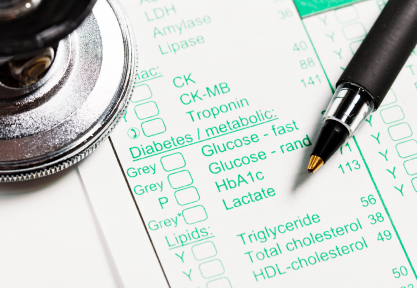 Today I ran across a Joslin Diabetes Center study about diabetes and early detection of kidney disease. The study results are of particular interest to me for several reasons. I’ve worked with so many people with diabetes, diagnosed with kidney disease and they didn’t even know they were at risk before ending up near or on dialysis. Secondly, while working in a DaVita dialysis center I was involved in a research study called the Nutrition and Inflammatory Evaluation of Dialysis Patients (NIED) Study that has provided extremely useful data about the connection between chronic inflammation and kidney disease. Third, diabetes is one of the chronic diseases in my own family so being as healthy as possible is an important personal goal.
Today I ran across a Joslin Diabetes Center study about diabetes and early detection of kidney disease. The study results are of particular interest to me for several reasons. I’ve worked with so many people with diabetes, diagnosed with kidney disease and they didn’t even know they were at risk before ending up near or on dialysis. Secondly, while working in a DaVita dialysis center I was involved in a research study called the Nutrition and Inflammatory Evaluation of Dialysis Patients (NIED) Study that has provided extremely useful data about the connection between chronic inflammation and kidney disease. Third, diabetes is one of the chronic diseases in my own family so being as healthy as possible is an important personal goal.
The Joslin study researchers identified two protein receptors, Tumor Necrosis Factor Receptor 1 and 2 (TNFR1 and TNFR2) that are elevated in people with Type 1 and Type 2 diabetes. The presence of these markers in the bloodstream can predict your risk of kidney function loss as much as 10 years in advance. That’s huge considering many people are unaware they have kidney problems until they are in the later stages of chronic kidney disease. There are no other tests like this available today, but in the future TNFR may become a routine part of your diabetes care. Currently, doctors use hemoglobin A1C, blood pressure, GFR and the presence of protein in the urine (proteinuria) to screen people with diabetes for decline in kidney function. The researchers indicate a diagnostic test to measure TNFRs in blood will be developed soon and available for patients.
What this means from the kidney diet standpoint is early detection gives you a chance to make diet and lifestyle changes earlier. Our health-related behaviors and actions are more likely to change when we know personal risk is greater. You can protect your kidneys and preserve kidney function. The diet goals for kidney disease differ with each stage. To learn more check out these articles on diet and stages of CKD.
What to eat when you have stage 1 or 2 chronic kidney disease Diet and nutrition goals for people with stage 3 chronic kidney diseaseFinding the right diet and nutrition solutions that work with your individual needs is important. In early CKD you can slow the progression and protect your kidneys by blood pressure control, blood glucose control and eating the healthiest way for the stage of CKD you are experiencing. Ask your doctor for a referral to a renal dietitian for additional help with your kidney diet.
